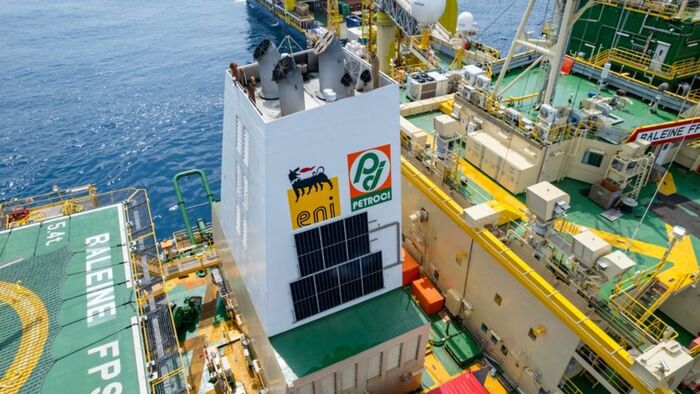AreaRead the video transcript expand here
Jakarta in mid-May: Small farmers protest in the Indonesian capital and other parts of the country.
For weeks they have been suffering from the low prices for the most used vegetable oil in the world: palm oil.
Gus Dalhari Harahap, palm oil farmer:
“We're in the doldrums, and things could get worse soon. We can no longer get rid of the palm oil because the mills no longer take it from us. But the palm oil can only be processed in special mills. If they don't buy it from us, it will be the end of us palm oil farmers.«
But: The price drop was wanted by the Indonesian government.
At the end of April, President Joko Widodo banned the export of crude palm oil in order, as he said, to secure the food supply for his own people.
Food had become so expensive in Indonesia that people took to the streets and there was a risk of unrest.
The export ban should at least regulate the prices for cooking oils in the country.
However, the measure primarily ensured that the prices for the fresh oleaginous fruits and their oil plummeted.
Now those who make a living from palm oil have taken to the streets: the small farmers.
Yuslan Thamrin, palm oil farmer:
“With palm oil prices so low, we don't even want to harvest anymore. The camps are also no longer able to accept the palm oil fruits from the farmers. The warehouses are full, there is no more space.«
The artificial shortage in Indonesia had far-reaching consequences: the world market price for palm oil skyrocketed, as did that for other edible oils.
Because of climate change, the corona pandemic, and last but not least the war against Ukraine, there is a lack of agricultural products in many countries in the southern hemisphere.
Markets are sensitive to uncertainties in this global food crisis.
And the export ban in Indonesia further fueled the crisis.
Just 20 years ago, the world got by on less than half the amount of palm oil.
Today, the cheap raw material is consumed almost everywhere in the world.
In Asia and Africa, the oil ends up in the cooking pot, in Germany it is in fuel, in nut nougat cream, biscuits, ready meals, detergents and shower gel - according to the WWF in every second supermarket product.
Germany alone consumes around 1.8 million tons of the raw material every year.
52 percent becomes biodiesel, 35 percent food and animal feed.
13 percent for cosmetics, household cleaners and medicines.
In order to meet global demand, oil palms are being cultivated by international corporations on ever larger areas.
They often cut down rainforest for this.
Huge amounts of climate-damaging CO₂ are released in the process.
People are also suffering: indigenous people are being driven out of their villages by the palm oil producers, some of them by force.
Smallholders work on the plantations, who often live with their families on subsistence level, child labor is not uncommon.
Palm oil is also called "liquid ivory" by those who trade it, so lucrative and destructive is the cultivation.
But the coveted oil cannot simply be replaced.
Other oil-bearing crops, such as canola, coconut and sunflower produce far lower yields per hectare.
Far away from the plantations in Indonesia, in Hamburg, the start-up Colipi is therefore researching alternatives from the laboratory.
The four-strong research team wants to produce vegetable oil from yeast on a large scale in the future - and cause far less damage in the process.
Maximilian Webers, Colipi:
»The world population is growing. That means the demand is growing. This demand must not be served by enlarging the existing palm oil farms, i.e. by more clearing of rainforests. This gap, which will arise in the coming years and decades, can be filled with biotechnological processes.«
The researchers feed special yeasts with biomass, currently with a sugar solution.
later, organic waste could also be used.
Under optimal conditions in the bioreactor, the yeasts become fat after a while.
They begin to produce oil, which the researchers then harness.
Philipp Arbter, Colipi:
“Depending on the cultivation conditions, it will also be liquid at room temperature. Or here under different cultivation conditions it is solid at room temperature. This means that it can not only be used to replace or imitate palm oil, but also other oils that have different melting points and different compositions.«
However, this so-called yeast fermentation is not climate-neutral: the processes in the bioreactor produce a relatively large amount of climate-damaging CO₂.
The start-up has therefore developed another step for its oil production.
Philipp Arbter, Colipi:
“And that's happening in a second bioreactor here. The CO₂ is fed in there and absorbed by other microorganisms. These microorganisms then serve as food for the yeasts. That means we really have a cycle and the best possible CO2 footprint.«
From 2050, Colipi wants to produce one million tons of climate-friendly oil in huge bioreactors in Europe.
Then many millions of tons of food waste from industry are to be recycled.
According to the founders, the land consumption would be much lower than with conventional palm oil extraction.
And the price fluctuations associated with the complex supply chains were eliminated as well.
Maximilian Webers, Colipi:
»The industry doesn't want any uncertainty, it would ideally like to have a price that can be planned and availability that can be planned. And that is exactly what can be achieved with biotechnological processes, because we produce locally, with local raw materials, very predictably, with a short supply chain.«
According to the Colipi founders, the cosmetics and food industry is interested in a sustainable alternative to palm oil.
Other start-ups are therefore already researching alternatives from the laboratory.
But it will probably be decades before companies use oil from bioreactors on a large scale.
Time that, according to nature conservation organizations, the rainforests no longer have.
Dealers, producers and industry have therefore been sitting together with the WWF at the so-called "Round Table for Sustainable Palm Oil", RSPO for short, since 2004.
Its members voluntarily agree to do more for nature conservation and human rights along the palm oil supply chain.
By 2020, many major brands around the world only wanted to put RSPO-certified palm oil on their shelves.
But the WWF itself recently drew a devastating balance: Many companies did not keep their promises.
The WWF is therefore calling for a change of course – including among consumers.
They should consume less critical products.
According to the nature conservation organization, Germans could cut their palm oil consumption by half by eating fewer processed foods, meat and sweets, and instead eating more fresh food and leaving the car at home more often.
But as long as palm oil continues to be consumed around the world, Indonesia will continue to produce far more of it than it needs itself.
The government overturned the export ban after three weeks - the supply situation in the country was secured.
The partly poor population did not benefit from the measure: food inflation continued to rise in May.
The price for the palm oil fruits of the small farmers, however, is still in the basement.
Because the traders are still sitting on full stocks after the export ban and can wait until they can ship their palm oil all over the world at the best possible price.








